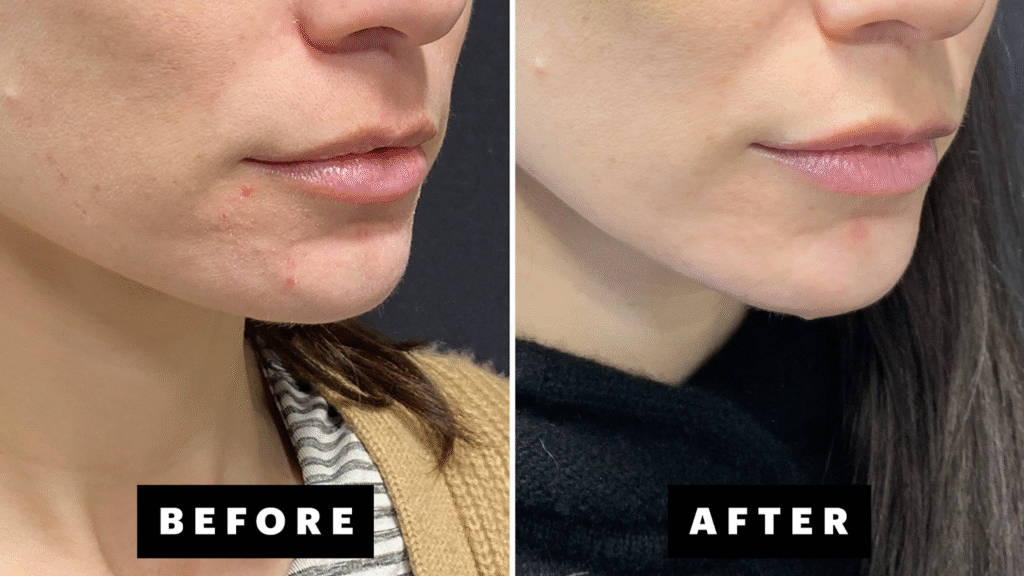
Cystic acne is one of the most severe and challenging forms of acne. Unlike common blackheads or whiteheads, it develops deep beneath the skin, creating large, inflamed cysts that are often painful and resistant to traditional remedies. Many people turn to drugstore products in hopes of quick relief, but the reality is that these options rarely provide lasting results. This is where professional guidance and specialised cystic acne treatments come into play, offering solutions designed to target the root causes rather than just the surface symptoms.
Why Over-the-Counter Products Fall Short
Most over-the-counter (OTC) acne products are designed to manage mild to moderate breakouts. They often contain active ingredients like salicylic acid or benzoyl peroxide, which can help with surface-level pimples by reducing oil production and unclogging pores. However, cystic acne forms much deeper in the skin layers, where these ingredients cannot penetrate effectively.
Because of this limitation, OTC treatments may only dry out the skin’s surface without addressing the underlying inflammation or bacteria. This can result in irritation, redness, or flaking without improving the actual cysts. In fact, some users may find their condition worsening as the skin barrier becomes compromised.
The Role of Hormones and Genetics
Another reason over-the-counter options fail is that cystic acne is often influenced by internal factors like hormones and genetics. Fluctuations in hormones can stimulate oil glands to overproduce sebum, creating the perfect environment for bacteria and inflammation to thrive. OTC products cannot regulate these internal triggers, which is why they provide little relief for this condition.
For individuals with a genetic predisposition to severe acne, drugstore creams and washes may feel like putting a bandage on a much deeper issue. Professional care is usually required to tailor treatments to each person’s unique biological factors.
The Risk of Scarring
Cystic acne not only causes discomfort and visible swelling but also poses a significant risk of scarring. Because the cysts are large and inflamed, they can damage surrounding tissue as they heal. OTC products that only address the skin’s surface do little to reduce this risk, leaving patients frustrated and vulnerable to long-term skin texture issues.
Professional dermatologists can prescribe targeted medications or therapies to reduce inflammation and prevent cysts from progressing to scars. The right treatment plan can make a dramatic difference in preserving the skin’s health and appearance.
Why Professional Treatments Work Better
Dermatologists have access to advanced tools and medications that go far beyond what is sold in drugstores. Prescription-strength topical creams, oral antibiotics, hormonal therapies, and even isotretinoin are often part of customised plans for severe acne cases.
In-office procedures like chemical peels, cortisone injections, and laser therapy can also reduce inflammation and speed up healing. These professional methods treat acne at its root, not just at the surface, which is why they are far more effective for stubborn cystic outbreaks.
The Importance of Early Intervention
Many people spend months or years trying different OTC products before seeking professional help, often delaying effective care. The longer cystic acne is left untreated, the greater the chance of permanent scars and emotional distress. Consulting a dermatologist early can help reduce flare-ups, prevent long-term damage, and restore confidence.
Lifestyle and Skincare Support
Although OTC products alone are insufficient for cystic acne, a comprehensive care plan often includes supportive skincare and lifestyle adjustments. Dermatologists may recommend gentle cleansers, non-comedogenic moisturisers, and sunscreen to protect the skin while stronger treatments do their work.
Dietary changes, stress management, and proper sleep can also play supportive roles in reducing acne severity. While these adjustments are not a cure, they complement medical treatments and help maintain healthier skin overall.
Conclusion
Cystic acne is a complex condition that over-the-counter products are simply not equipped to handle. Because it develops deep within the skin and is often driven by hormones or genetics, effective care requires the expertise of a dermatologist and access to prescription solutions. Early professional intervention not only clears active breakouts but also helps reduce the risk of long-term damage. For those already dealing with scars, specialised treatments for acne scars can further improve skin texture and restore confidence.


